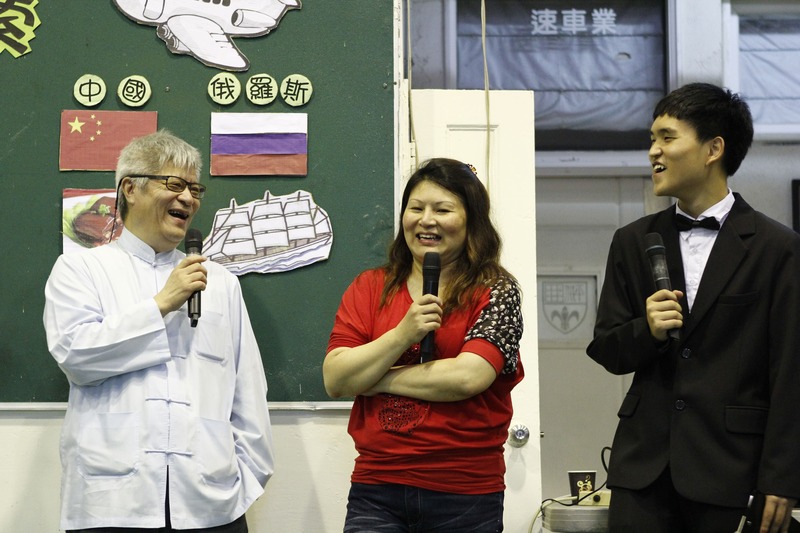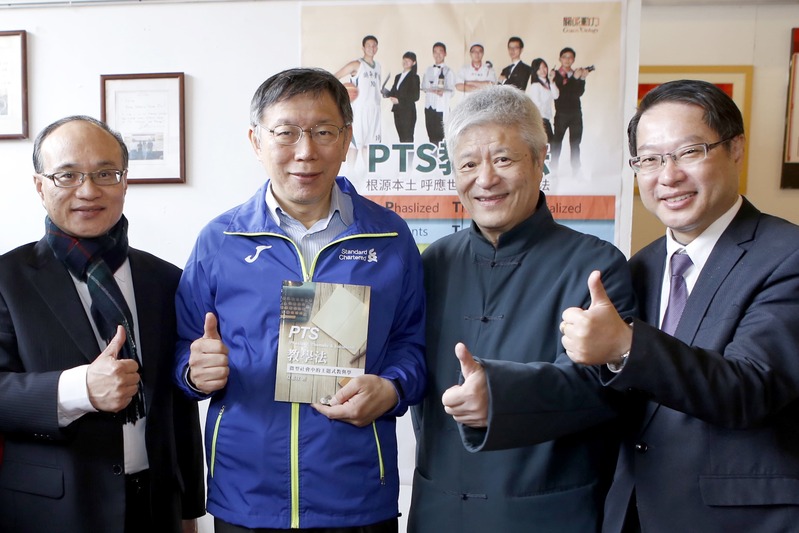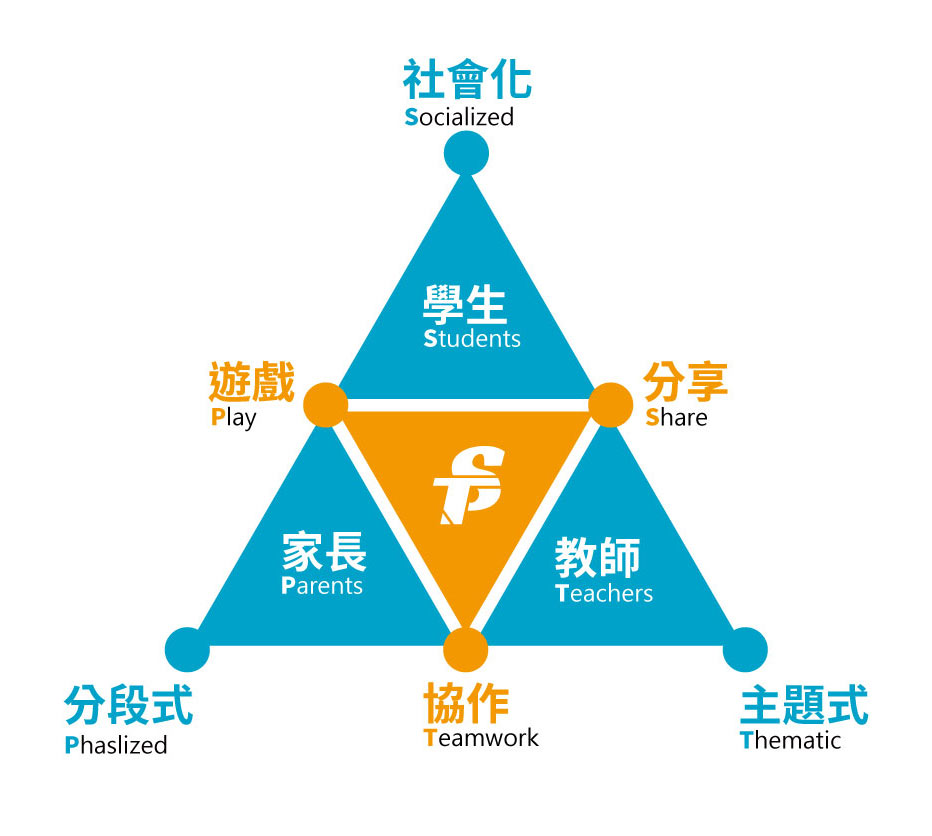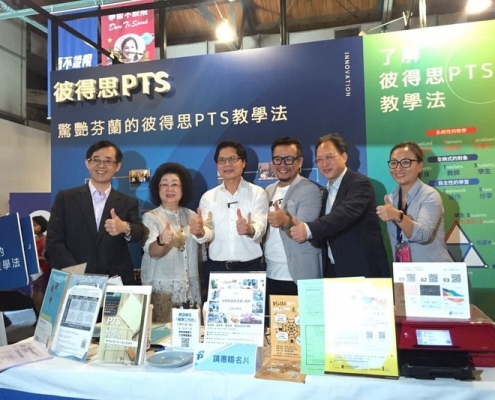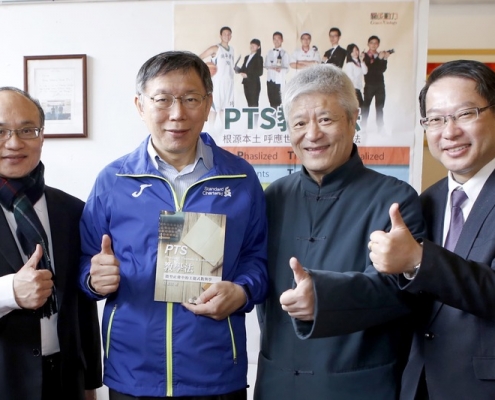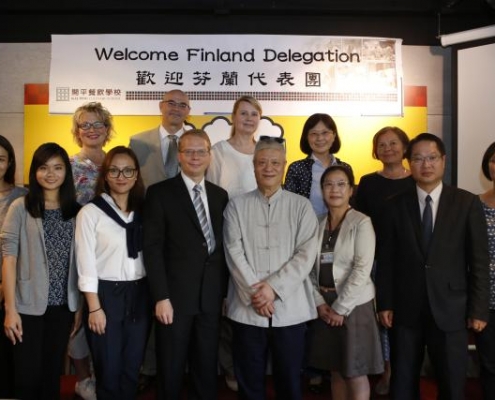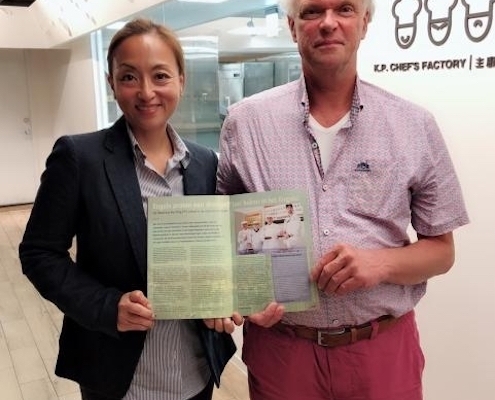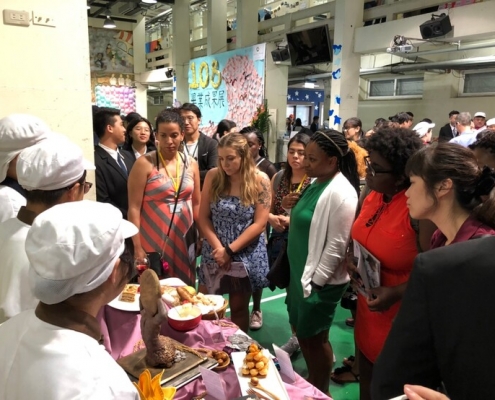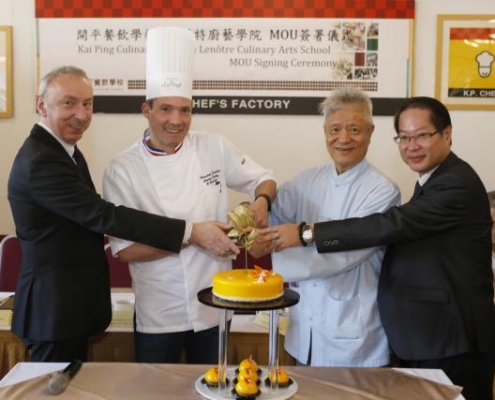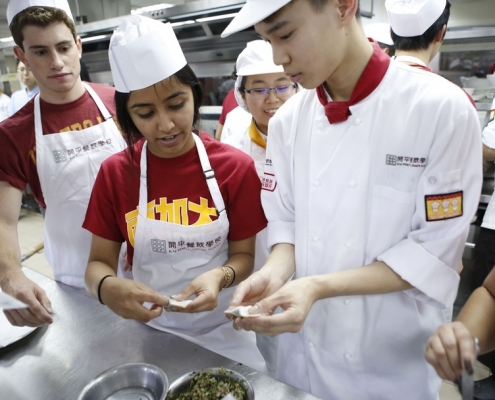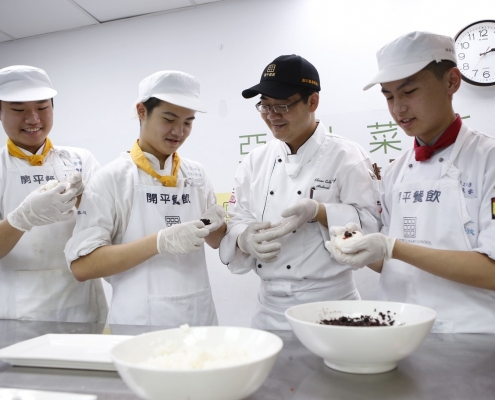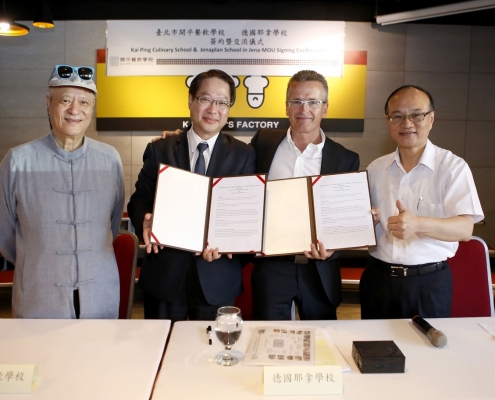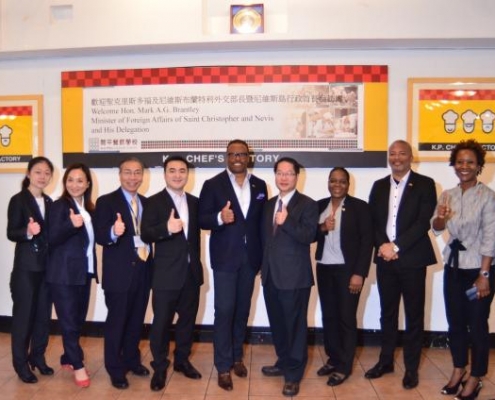An innovative experimental education school founded on the principle of “Natural Development”
Kai Ping Culinary School is a unique school without bells, uniform textbooks, mentors, or conventional administrative offices. Upon entering Kai Ping, one can easily observe various vibrant scenes across the campus.
Classroom learning is brimming with energy as students engage enthusiastically in project activities or classroom tasks, whether in teacher-student interactions, group discussions, or activity competitions, all under the banner of “fun” and “enjoyable” learning tasks. Students confidently present their findings, employing thematic learning to integrate knowledge throughout the process of problem formulation, exploration, and summary of learning experiences, both individually and in groups. Their confident expressions stand as testimony to their growth. Students are all dedicated to catering services and cooking. In La Maison des Chefs, students don professional attire and, following two years of fundamental skills training, senior students are able to comprehensively apply their knowledge, completing the challenges of restaurant operations as a team.
The described campus scenes are diverse yet vibrant, enabling students to explore and find their dreams and goals, deeply understand their abilities and traits, exceed limitations, and pursue what they enjoy. This is precisely the essence of the ‘Natural Development’ educational philosophy emphasized by Kai Ping. With the spirit of innovative experimental education, Kai Ping deconstructs traditional educational concepts and frameworks, establishing local innovative education through practical experience. This includes “Guanxiology” and “PTS Education” (Phaslized, Thematic, Socialized), integrating culinary professional skills through thematic tasks to implement “Culinary Magnet Curriculum.” The following sections discuss Kai Ping’s educational pillars and the application of its educational philosophy.
Guanxiology & PTS Education
Guanxiology
Educational innovations around the world are founded on various theories, and Kai Ping Culinary School is rooted in “Guanxiology,” supporting the practice of Phaslized, Thematic, Socialized Education (PTS) with its profound theoretical base.
“Guanxiology” was established by Academician Hsia, Hui-wen, merging decades of case handling experience with the distillation of Eastern and Western philosophical thoughts. It boasts a solid theoretical foundation and effective operational techniques, emphasizing that “Dialogue” can help individuals manage relational dilemmas. Through reflection, individuals can discover their strengths and limitations, foster shifts in perspective, broaden their views, and find their passions, leading to a joyful and fulfilling life. This, in turn, influences others around them, freeing them from the constraints of painful relationships and allowing them to live comfortably and authentically.
By integrating the principles of “Guanxiology” into the teaching environment, Kai Ping Culinary School emphasizes respecting every individual, accepting their uniqueness, and providing freedom for personal growth, thus creating an atmosphere of respect and equality. Students can engage in stimulating discussions with teachers through a teacher-student platform without the fear of being labeled. In their instructional approach, teachers do not criticize or instruct but listen, ask meaningful questions, and share life stories. Through these thematic cooperative courses, they accompany students in self-exploration, practice expression, gain confidence, learn to manage conflicts within teamwork, and develop post-conflict cooperative skills.
Additionally, “Guanxiology” plays a key role in fostering a learning community among parents, students, and teachers. It guides parents to shift their perspectives and inspire reflection, thereby stepping beyond traditional boundaries and learning to support their children in a more relaxed manner. This change transforms tense parent-child relationships into cooperative partnerships with teachers, all committed to supporting student growth and serving as a steadfast support for students.
The Phaslized, Thematic, Socialized Education (PTS)
The Phaslized, Thematic, Socialized (PTS) Education is Kai Ping Culinary School’s educational model and teaching strategy, designed to cultivate talents who are adaptable to societal development. This model aims for students to develop into socially responsible citizens, possessing both theoretical and practical skills, the ability to analyze and solve multifaceted problems, and to have a positive influence, applying knowledge innovatively and entrepreneurially.
PTS Education views students as the primary agents of their learning. Teachers are not just transmitters of knowledge and skills but also companions in students’ learning journeys. In a learning atmosphere collaboratively created by parents and teachers, through the three strategic approaches of phaslized learning, thematic teaching, and a socialized interactive environment, a systematic form of instruction is sculpted, guiding students to find their dream goals and suitable learning styles.
Kai Ping’s teaching themes break away from the constraints of disciplines and traditional textbooks, starting from students’ life experiences and interests. The curriculum responds to real-world needs with practical projects such as “One Day Pop-up Restaurant,” “Culinary Festival Sales,” and “Sharing Power.” It also incorporates a wealth of culinary resources, including satellite courses (new culinary knowledge/skills lectures), master lectures, overseas educational trips, and thematic culinary competitions, allowing students to accumulate experience through hands-on practice and acquire skills they can take with them.
Kai Ping’s International Education Perspective
Innovative Experimental Education
Situated in the rapidly changing 21st century, where international relations, technological advancements, environmental issues, and cultural thoughts all have interconnected global impacts, it’s essential to meet the demands of the era. Various international educational organizations have proposed solutions in response. In 2014, Kai Ping was invited to Spain to participate in the “International Seminar on Theory and Practice of Postmodern Thought,” where the school shared its approach to implementing humanities education and promoting a dialogical teaching method.
In 2017, Kai Ping engaged in discussions about Eastern and Western innovative teaching methods with the chairperson of the European Jena Association. A memorandum of understanding for exchange and cooperation was signed in the aim of in-depth international exchanges and sharing of forward-thinking education with Taiwan. In the same year, Kai Ping also signed an exchange and cooperation agreement with the JenaPlan-Schule Jena in Germany to enhance interactions in innovative education.
In the winter of 2017, representatives from Finland’s Further Education Center of Salpaus and Kouvola Region Vocational College, along with the Finland Trade Center in Taipei, proactively visited to learn from Kai Ping. They were impressed by the PTS Education, recognizing it as a comprehensive educational approach suitable for all ages and across various disciplines, capable of both deep-rooted learning and upward integration. In 2020, Minerva University from the United States visited Kai Ping to exchange ideas on the application of innovative experimental education in online interactive models and social learning that extends beyond the traditional school framework.
Kai Ping Education is not only gradually becoming known to the public in Taiwan through discourse, educational forums, and workshops but also, with an educational model that integrates Eastern and Western cultures and aligns with the postmodern spirit, it collaborates with innovative educational schools and groups worldwide to create together. It has become one of the exemplars of local education moving towards internationalization.
Professional Teaching
Kai Ping Culinary School was awarded the “Recognition of Quality Culinary Education” by Worldchefs in 2015. This certification aims to acknowledge the various culinary and Western pastry education established by the WorldChefs Education Committee. Obtaining this certification represents that the teaching curriculum of Kai Ping Culinary School encompasses professional knowledge, planning, and culinary skills.
In order to align with international standards, graduates of Kai Ping Culinary School have the eligibility to apply for the Worldchefs Third Level Chef Certification. To provide students with more internationally recognized professional courses, the School continuously improves its professional teaching. In 2018, it became the world’s first high school to achieve certification as “WorldChefs Certified Chef de Partie – WCCP.” Graduates from the School can apply for Chef de Partie qualifications, which are advantageous for employment in various catering establishments worldwide.
2021 | "Muduo Award" of the Kai Ping Culinary School Founder Hui-Wen Hsia.
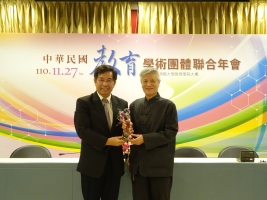
2021 | High-quality school by the Department of Education.
Selected as the 2021 high-quality school by the Department of Education. The School was the only recognized vocational high school with innovative educational experiments.

2020 | Received the distinction of Taipei Education 111 Benchmark School
2020 Received the distinction of Taipei Education 111 Benchmark School

2020 | Received the Best Education- Kappa Delta Pi, International Honor Society in Education 2020 award
Received the Best Education- Kappa Delta Pi, International Honor Society in Education 2020 award

2019 | Parenting.com.tw Education Innovation 100 Award
The School won the 2019 Parenting.com.tw Education Innovation 100 Award, emphasizing the deep learning of literacy and creating a new blueprint for education

2018 | "2018 Smiling Taiwan Creative Teaching Plan Competition" and won the special award
運用在地資源實踐跨域以素養為核心的教育,並連結聯合國永續發展指標(SDGs),讓在地永續成為教師教學最好的素材,共同編寫具有在地多元特色的創意教案,藉此啟發孩子對於在地的認同與參與,帶著孩子與世界接軌說家鄉的故事,成為孩子飛向未來世界最厚實的翅膀。

